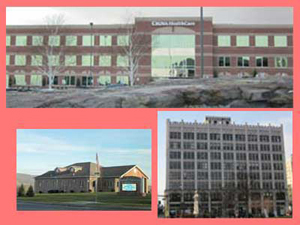Pennsylvania Dental Providers

USA Dental Edge breaks down oral care providers by county for the convenience of the customer/patient. Use the search tools here to find care near you.
Pennsylvania Counties
PA County List →About Pennsylvania
Residents of Pennsylvania find themselves in the same dilemna as people in every other state. The never-ending search for quality, affordable dental insurance for themselves or their families. Whether you live in the northeastern corner of the state near Carbondale, or the southwestern corner near Pittsburgh, finding a value plan for your dentistry never seems to get any easier.
Along with fuel prices, food, utilities, taxes, and everything else, the costs associated with good dental care seem to keep rising. With the rise in prices comes the rise in rates for dental plans and insurance premiums.
The Keystone state is currently home to roughly 13 million people, each of whom require dental care at some point. If the market is there, the insurance companies will be too. Whether you live in the larger Pennsylvania cities: Allentown, Bethlehem, Erie, Philadelphia, Pittsburgh, Scranton, State College, Wilkes-Barre, Williamsport or the smaller towns in between, finding dental care in PA is easy if you know where to look.
Sometimes the state's latest statistics can help guide you as well. Some of the relevant dental statistics for Pennsylvania can be found here if you are interested in more in-depth numbers to aid your research.
- Philadelphia
- Pittsburgh
- Allentown
- Erie
- Upper Darby
- Scranton
- Bethlehem
- Lower Merion
- Bensalem
- Reading
- Wilkes-Barre
- Pittston
- State College
- Altoona
- Dickson City
- Harrisburg
- Lancaster
- Old Forge
- Mifflintown
- Juniata
- Homewood
- Beaver Falls
- Sharpsburg
- Brackenridge
- Olyphant
Pennsylvania Dental Statistics
It's amazing what statistics can tell us about society. Some simple data collection from everyday citizens paints a detailed picture of the state of oral health in the USA. Here are some interesting dental stats according to the Centers for Disease Control and Prevention:
- Nearly 78 percent of Americans have had at least one cavity before they reach the age of 18.
- 80 percent of the population residing in the USA has some form of gum (periodontal) disease.
- Americans make about 500 million dentist visits annually for preventive care and oral health issues
- American citizens, including residents of Pennsylvania, spend an estimated 98 billion dollars on dental services annually
- Overexposure to fluoride is higher in adolescents than in adults, those most affected are aged 12-15
- Most adults show signs of periodontal disease, with severe periodontal disease affecting approximately 14 percent of adults
- Men are more likely than women to have more severe dental diseases including oral cancer
- Three out of every four patients don't change their toothbrush as often as is recommended
- As many as 16 percent of children between 6 and 19 and 23 percent of adults age 20 an up have untreated cavities
Some basic statistics about Pennsylvania can put the current state of dental health care into perspective. The U.S. Census Bureau takes a census of the population every 10 years. They conduct censuses of business activity every five years. They also conduct various other surveys on an annual basis. The following data is derived from the 2020 Census as well as other surveys of business activity in Pennsylvania.
(Stand by, detailed statistics are still being configured...)
Latest data derived from Census.org | Centers for Disease Control and Prevention
UDE is user supported. When you buy through our site, we may earn a small affiliate commission, our full disclosure is here.Does PA Have Enough Dentits?
Pennsylvania generally had an adequate number of dentists to serve its population. However, the distribution of dental care providers can vary across different regions within the state.
Urban areas and densely populated regions in Pennsylvania, such as Philadelphia and Pittsburgh, typically have a higher concentration of dentists, providing relatively good access to dental care for residents in those areas. In contrast, some rural and underserved areas may face challenges in accessing dental services due to a shortage of dentists.
The availability of dentists can be influenced by various factors, including the population's dental health needs, the number of dental schools and training programs, the state's dental care policies, and incentives for dentists to practice in underserved areas.
Efforts are made at both the state and national levels to address dental care disparities and ensure access to dental services for all residents. Initiatives such as loan repayment programs, telehealth services, and community health centers help improve access to dental care, especially in underserved and rural areas.
If you are concerned about accessing dental care in a specific area of Pennsylvania, consider contacting your local health department or community health centers to inquire about available dental services and resources in your region. Additionally, dental associations and organizations may have information on dentists participating in programs to serve underserved communities.
Dentists in Crime Riddled Areas
Dental care is essential for everyone, regardless of the neighborhood they live in. However, accessing dental care in crime riddled areas can present additional challenges due to various factors, including safety concerns, limited dentalcare facilities, and financial constraints.
The phrase "riddled with crime" means that a place or area is heavily affected by or plagued with a significant amount of criminal activity. It implies that crime is prevalent, frequent, and poses a significant challenge for law enforcement and the safety of residents or visitors.
When a location is described as "riddled with crime," it often suggests that the area has higher crime rates compared to other places, and criminal activities such as theft, violence, drug-related incidents, or other unlawful behaviors are common occurrences.
That being said, crime rates can vary within different areas of Pennsylvania. The highest crime areas in PA are typically found in certain neighborhoods or cities with higher population densities and socio-economic challenges. Some cities that have been known to be riddled with crime in the past include Philadelphia; as the largest city in Pennsylvania, Philadelphia has had higher crime rates, particularly in certain neighborhoods. It's essential to note that crime rates can vary significantly within the city itself.
Another are of concern is Pittsburgh, while known for its economic growth and revitalization, has experienced crime-related challenges in specific areas. Harrisburg, the state capital, has faced crime-related issues, particularly in certain neighborhoods. Reading, located in Berks County, has faced challenges with crime rates.Chester, located in Delaware County, has faced crime-related issues over the years.Allentown, located in Lehigh County, has faced crime-related challenges. And lastly Erie, located in northwestern Pennsylvania, has experienced crime-related issues in certain neighborhoods.
Here are some options and considerations for finding dentists in high crime riddled areas:
- Community Health Centers: Look for community health centers or clinics in or near the high crime area. These centers often offer affordable or sliding-scale dental services, making them more accessible to PA residents with limited financial means.
- Nonprofit Organizations: Some nonprofit organizations operate mobile dental clinics or partner with local dentists to provide dental services in underserved neighborhoods, including crime riddled areas. These organizations may offer free or low-cost dental care to residents.
- Government Programs: Check with local health departments or government agencies for dental assistance programs designed to help PA residents in high crime areas access essential healthcare services.
- Dental Schools: Dental schools may have clinics that offer discounted services to the public, including those living in crime riddled areas. Dental students, under the supervision of licensed dentists, provide the treatments.
- Local Referrals: Ask social service agencies, community organizations, or local residents for recommendations or referrals to dentists who serve the Pennsylvania community in high crime areas.
- Safety Precautions: When visiting a dental office in a high crime area, consider scheduling appointments during daylight hours to enhance safety. Additionally, inquire about any safety measures the dental office has in place, such as security personnel or controlled access to the building.
- Telehealth Options: In some cases, telehealth consultations or virtual dental appointments may be available. While this might not replace all dental services, it can be useful for initial assessments or consultations.
- Dental Vouchers: Check if social service agencies or charitable organizations offer dental vouchers that can be used to offset the cost of dental care for residents in high crime areas.
It's essential to prioritize oral health and seek dental care, even in challenging circumstances. For safety and peace of mind, consider reaching out to local organizations or community leaders for guidance on reputable dental services in the area.
It's important to recognize that many cities and communities in Pennsylvania work actively to address crime-related challenges through community policing, crime prevention programs, and other initiatives aimed at enhancing public safety.
Do Dentists Pay More to Work in Pennsylvania?
The cost of malpractice insurance for dentists in Pennsylvania, like in many other states, can vary based on several factors. These factors may include the dentist's specialty, years of experience, location of the dental practice, the type of procedures performed, and the dentist's claims history.
High insurance rates for dentists can affect the overall pricing of dental work. Dentists who perform higher-risk procedures or work in areas with a history of higher malpractice claims may typically face higher insurance premiums. Conversely, dentists who have a lower risk profile and a clean claims history may enjoy lower insurance costs.
Dental malpractice insurance in Pennsylvania, like in other states, is a type of professional liability insurance that provides coverage for dental professionals in the event they are sued by patients for alleged negligence or malpractice.
Dental malpractice insurance typically covers legal fees, court costs, and any damages awarded to the plaintiff in a malpractice lawsuit. The coverage may also include settlements and other expenses related to the defense of a claim.
Dentists in Pennsylvania may choose to obtain dental malpractice insurance through various insurance providers. The cost of dental malpractice insurance can vary based on several factors, including the dentist's specialty, years of experience, location of the dental practice, and the coverage limits desired.
Insurance rates can be higher in densely populated urban areas like Philadelphia and Pittsburgh, where the number of potential claims might be higher. Dentists with a history of malpractice claims or payouts might face higher insurance premiums. Also dentists who perform higher-risk procedures or work in specialized fields might have higher insurance costs.
Besides location within the state, newly licensed dentists might pay higher rates compared to experienced practitioners with a clean claims history. So in the grand scheme of things, dentists do pay more to work in Pennsyvania in certain instances.
It's essential for dentists in Pennsylvania to carefully review and compare insurance options from various providers to find the coverage that best suits their needs and budget. Additionally, maintaining a strong focus on patient safety, adhering to professional standards of care, and implementing risk management strategies can help dentists reduce the likelihood of malpractice claims and potentially lower their insurance premiums over time.
Pennsylvania Dental Insurance
Dental insurance is relatively common in Pennsylvania. Many employers offer dental insurance as part of their employee benefits package, providing coverage for dental care services such as routine check-ups, cleanings, X-rays, and other dental procedures. Additionally, some individuals and families choose to purchase dental insurance plans directly from insurance companies or through the Health Insurance Marketplace.
While dental insurance is widely available, the extent of coverage and the specific services covered can vary depending on the insurance plan. Some dental insurance plans may have waiting periods for certain treatments, limitations on coverage for specific procedures, and annual maximums for benefits.
It's essential for individuals and families to carefully review the terms of their dental insurance plan to understand what services are covered, any associated costs, and any limitations or restrictions that may apply.
For those who do not have access to dental insurance or need additional coverage, there are also discount dental plans and dental savings programs available in Pennsylvania. These programs provide discounts on dental services at participating dentists, helping to reduce out-of-pocket expenses for dental care.
In general, dental insurance can be more expensive compared to other types of insurance, such as medical insurance, due to several reasons:
- Dental Services: Dental insurance covers a wide range of dental services, including preventive care, restorative treatments, and specialty services. The coverage for certain high-cost dental procedures can contribute to higher premiums.
- Frequency of Use: Dental insurance is often used more frequently than medical insurance, as people generally visit the dentist for routine check-ups and cleanings every six months. Frequent utilization of dental services may impact the cost of insurance.
- Limited Network: Some dental insurance plans have a limited network of dentists, and using out-of-network providers may result in higher out-of-pocket expenses.
- Deductibles and Copayments: Dental insurance plans may have deductibles and copayments, which can contribute to the overall cost of coverage.
To determine the exact cost of dental insurance in Pennsylvania, it's best to obtain quotes from different dental insurance providers and compare their plans' benefits and costs. You can also consider exploring options through employer-sponsored plans, private insurers, or government programs like Medicaid if eligible.
There is no doubt having dental insurance encourages routine dental visits. This can help prevent dental issues and address any oral health concerns early on, leading to better overall dental health and potentially reducing the need for more extensive and costly treatments in the future.
Is PA Dental Care Better Than Other States?
The quality of dental care can vary widely between states and even within regions of the same state. It's challenging to make a general statement about whether dental care in Pennsylvania is better or worse than other states.
The quality of dental care depends on various factors, including the availability of skilled and qualified dentists, access to modern dental technologies and treatments, the affordability of dental services, and the overall oral health awareness and habits of the population.
Pennsylvania has many reputable dental schools, dental clinics, and private dental practices staffed by skilled professionals. The state also has dental organizations and associations that work to promote high standards of dental care and continuing education for dental professionals.
However, the quality of dental care can vary from one dental practice to another and can be influenced by factors such as location, urban vs. rural settings, socioeconomic conditions, and access to care.
When seeking dental care in Pennsylvania or any other state, it's essential to do your research, read patient reviews, and consider recommendations from friends or family.
About UDE
UDE is a free service designed to help place perspective patients with various oral care providers in close proximity. USA Dental Edge organizes oral care providers primarily by county (or parish when applicable).




